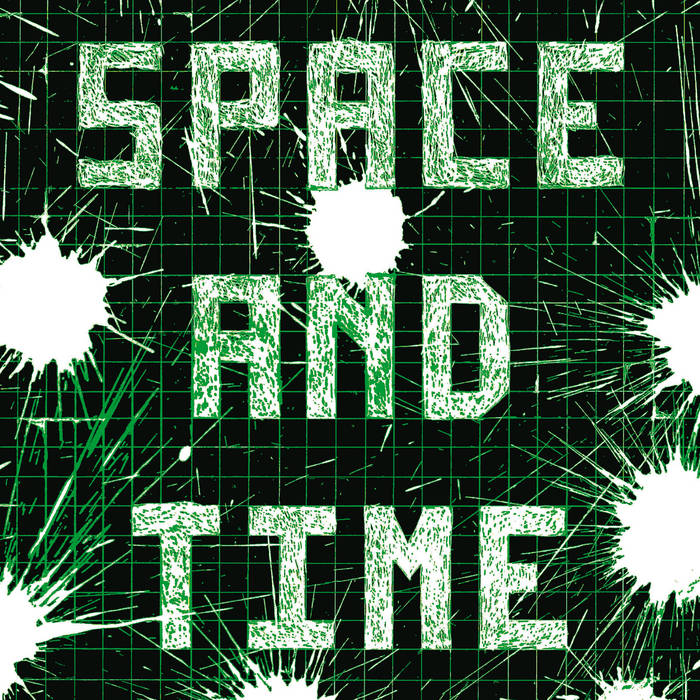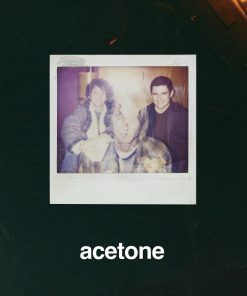Los Llamarada – Space and Time LP C/Site Recordings
$ 27,98 Original price was: $ 27,98.$ 16,79Current price is: $ 16,79.
After a decade-long absence Monterrey, Mexico’s Los Llamarada return with a brand new album! Many will remember the band’s original run through the aughts that brought three stellar albums on the wonderful S-S label, and many EPs and CDRs of post punk, no wave and psychedelic experimentation. The band’s time was abruptly cut short due to lineup changes and the climate of paranoia brought about by the cartel wars of the area. But with increased stability the band has reformed and picked up right where they left off.
Space and Time sees Los Llamarada experimenting with new ways of creation. The first major shift is opting for a digital studio recording as opposed to the trusty Tascam 4-track recordings of their past. While the band’s previous forays into the studio had yielded unsatisfactory results, this time around they used local punk legend Chuck Bubble’s home studio, which gave a more comfortable feel and allowed the band to improvise more freely. The sessions saw long-time member Estrella Ek Sanza return to her role on keyboard and vocals, which served as a turning point, reigniting the influence of chance, accidents, and the allure of the unknown. Mishaps were seized upon, allowing for new interpretations and new directions.
On Space and Time, originally released digitally and as a limited edition cassette by Registros El Derrumbe, Los Llamarada’s sound continues to be as unique and powerful as ever. There is an undeniable influence from the post-punk sounds of bands like Wire and The Fall, but the band frequently pushes into more experimental territory. With improvisation being such a key component to their work, they often create a buzzing psychedelia with keyboards, synths and electronics complimenting fierce and attacking fuzz guitar. Estrella and Sagan trade vocal duties, and sometimes duet (intentionally or unintentionally); each of their distinct deliveries act as repetitious focal points for songs that seem to swirl right up to the brink of losing control. Another major shift comes in the first ever major role of outside collaborators with the band. Their friends Beto Gonzalez and Lorena Quintanilla from Lorelle Meets the Obsolete played a pivotal role in developing the record, and their contributions further the eccentric sounds of this communal creation.
Los Llamarada’s return is a welcome one—the band returns to form, as if a decade was only a month or two, giving long-time listeners a familiar record that continues to push boundaries, and first-time listeners as good a starting point as any for understanding the magnitude of their work.
Fast Shipping and Professional Packing
We offer a broad range of shipping options due to our long-running partnerships with UPS, FedEx and DHL. Our warehouse employees will pack all goods to our exacting requirements. Your items are carefully inspected and secured properly prior to shipping. We ship to thousands of customers every day from all over the world. This demonstrates our dedication to becoming the largest online retailer in the world. Warehouses and distribution centres can be located in Europe as well as the USA.
Note: Orders that contain more than one item will be assigned a processing date depending on the item.
We will carefully examine all items before sending. Today, the majority of orders will be shipped within 48 hours. The expected delivery time will be between 3 and 7 days.
Returns
Stock is dynamic. It's not completely managed by us, since we have multiple entities, including the factory and the storage. The actual inventory can fluctuate at any time. It is possible that the stocks could be depleted after your order has been processed.
Our policy lasts 30 days. If you haven't received the product within 30 days, we're not able to issue a refund or an exchange.
To be eligible for a refund the product must be unopened and in the same state as when you received it. The item must be returned in its original packaging.
Related products
Uncategorized
Uncategorized
Uncategorized
Uncategorized
Uncategorized
Uncategorized
Uncategorized
Acid Mothers Temple & The Melting Paraiso U.F.O. – Myth of the Love Electrique 2LP Riot Season (UK)
Uncategorized
Uncategorized
Uncategorized
Uncategorized
Uncategorized
Uncategorized
Uncategorized
Uncategorized
Uncategorized
Uncategorized
Uncategorized
Uncategorized
Uncategorized
Uncategorized



































